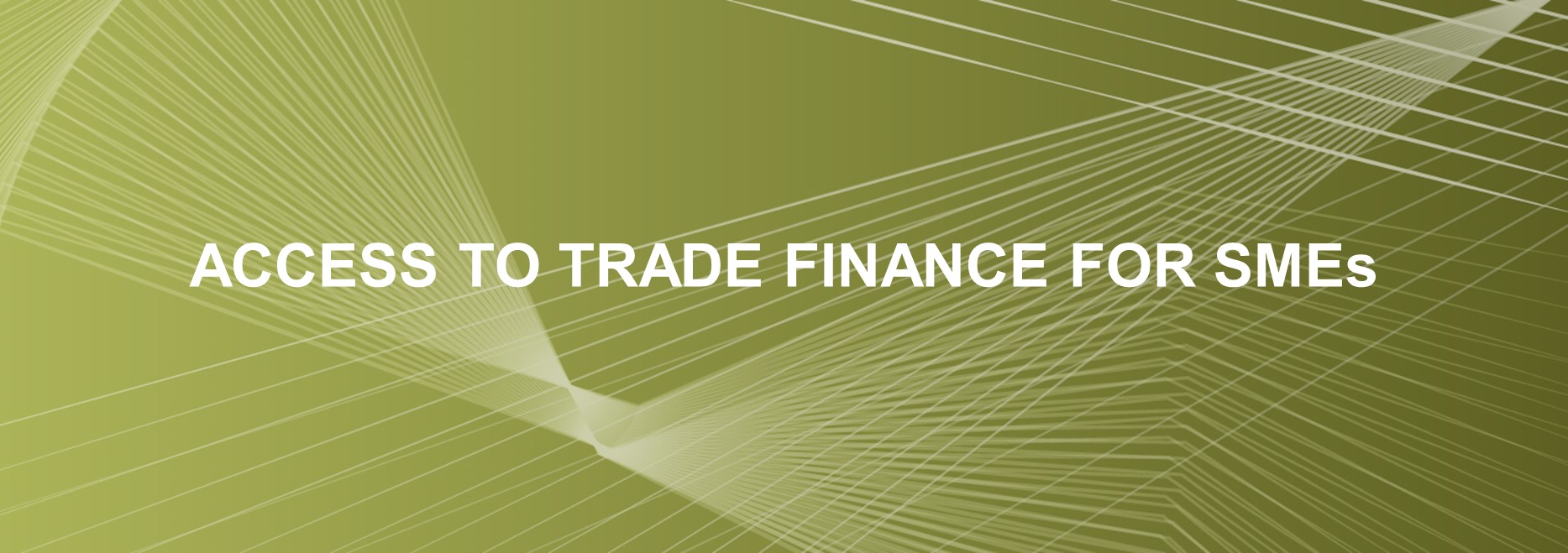- ACCESS TO TRADE FINANCE FOR SMEs

ACCESS TO TRADE FINANCE FOR SMEs
Global volatility makes SME trade finance more vital than ever – here’s how to get it
Global trade is more volatile than ever, but with change comes opportunity, making the current circumstances a good time to explore new markets and ventures. However, exploration and growth needs finance, and this has been challenging for SMEs to access – but this is changing, thanks to new digital trade finance platforms.
Between the Covid-19 pandemic, ongoing supply chain disruption, and now the war in Ukraine, global trade has seen some of its most turbulent years in many decades. The World Bank predicts global growth will fall by nearly half to 2.9% for 2022, and sharply rising fuel prices have increased the cost of trade in goods around the world – with the situation so volatile it can be hard to make accurate predictions.
SMEs are vital part of world economy
Whatever the economic climate, small and medium enterprises are a critical part of global trade – a 2022 report from the World Bank estimated SMEs make up 40% of the GDP of developing economies. But SMEs also struggle the most when it comes to accessing tools such as trade finance.
The SME Finance Forum, a global body which aims to help micro, small and medium enterprises (MSMEs) access finance, estimates 41% of MSMEs in developing countries have unmet finance needs – and the finance gap stands at a staggering $5 trillion. Women-owned businesses are also disproportionally affected, making up 23% of MSMEs, but 32% of the finance gap.
Why SMEs struggle with trade finance
For both regulatory and risk reduction reasons, big banks and financial institutions are often wary of SMEs – simply because most smaller enterprises cannot provide enough data to satisfy lenders, or collateral to offset perceived risk. A March 2022 report from the SME Finance Forum suggests banks are actively “de-risking” and withdrawing correspondent banking services – making international financial transactions much harder for SMEs.
A 2021 report from the OECD showed 45% of credit applications from SMEs are rejected, compared to just 17% of multinational applications. The same report also noted SMEs are less profitable for large financial institutions, making their needs a low priority.
New ways to access SME finance
In the new digital world, though, innovation can bring new approaches to issues such as SME finance. One example is CARGOES by DP World, one of the leading logistics firms on the planet. CARGOES is an online platform which connects SMEs to financial institutions across the world – giving a much wider range of choices for finance.
Based in the UAE, a crucial hub for global logistics and finance, CARGOES can provide an end-to-end solution for applying for, managing, and receiving funds. The platform covers trade, logistics and inventory finance, with the latter even allowing the use of inventory stored with DP World as collateral.
And by using a single platform with access to many financial institutions, SMEs can reduce the amount of paperwork required, avoid duplication of effort, and manage every part of the process in one place.
Get in touch with us:
To know more about trade opportunities in the UAE, contact us and we will be happy to share additional information.
Terry ANTOINETTE, Managing Director DTOS UAE
TAntoinette@dtos-mu.com
T. +971 5457 10280
T. +971 (0) 4429 5819
Didier VINEY, Head of International Operations & Outsourcing
DViney@dtos-mu.com
T: +230 5940 3974
T: +230 404 6000
We are DTOS:
We have been helping enterprises and entrepreneurs develop their business operations across East Africa, the Middle East and Mauritius for three decades. We capitalise on our strategic location in Mauritius and take pride in our heritage.
Our 250+ staff can provide objective, unbiased advice – we don’t make special arrangements with free zones or institutions, so we can remain impartial. With fixed fees and no hidden costs, our team of qualified accountants and company secretaries provide reliable service for hundreds of clients.

